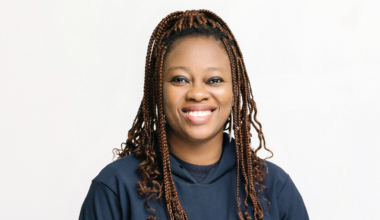After three years in Miami, Jorge is moving back to Mexico City. The co-founder of a LatAm software company says, “There’s too much competition here: many companies offer outsourcing to LatinX developers. Also, the rent is insane.”
In the beginning of Florida’s hot summer season, the mood among recent arrivals is chilling. Some newcomers who moved to the region during COVID-19 are rethinking their decisions.
“I am having a hard time with the culture: investors prefer meeting in person vs Zoom calls,” said Felicia who relocated to Miami from Belgium and is fundraising for her Web3 company. “It’s difficult to understand who means business, and who is there to party.”
Sholeh, who moved from the UK to work on her ArtTech business, said scamming has been a major challenge. “From people trying to sell us apartments they don’t own, to thieves pretending to be investors and stealing our VR equipment, it’s just overwhelming.”
The blue ocean is deep, but full of piranhas
Since COVID, Florida’s tech scene has grown tremendously. Last year saw a record for the region’s startups. According to a report by eMerge Americas, in 2022 VCs poured $5.8 billion into South Florida companies, up from 2021’s $5.3 billion.
For some startup founders, it was definitely “the right place at the right time.” The winners are FinTech, including Web3, HealthTech, and PropTech as real estate is traditionally the region’s strongest sector.
Last year, Propy, a Bay Area-turned-Miami startup led by immigrant founder Natalia Karayaneva, sold over $5 billion worth of properties on its blockchain platform. Andreessen Horowitz invested $350 million in Flow, the new venture by WeWork’s Adam Neumann, to operate over 3,000 apartments mostly in Miami-Fort Lauderdale.
But after a couple of years of enjoying a reputation in the media as a new tech destination, Florida still has a bad rap as “a sunny place for shady people.” Recent high-profile frauds include BKCoin Management, which was shut down by the SEC earlier this year. The Miami-based investment advisor had raised $100 million from at least 55 investors, but blew it on luxury items and “Ponzi-like payments.”
Scamming is a challenge for new arrivals, said Dr. Edwin Hernandez, the founder at EGLAVATOR, a tech incubator in Boca Raton. Immigrant founders who have limited access to traditional capital, such as bank loans, struggle in this environment. “Unless they have enough money for bootstrapping, fundraising in Miami is difficult,” Hernandez said.
“There are plenty of bad actors who see international entrepreneurs as an easy target. The Miami-Fort Lauderdale area is a vacation destination that attracts the wrong kind of people. Although the situation is changing, there are plenty who pretend to be something they are not.”
Hernandez recommends entrepreneurs to tap into Florida’s tech communities and accelerators to identify the right people and organizations to deal with.
Betting on international startups
According to Enrique Triay, a venture consulting manager at The Launch Pad, the entrepreneurship center at the University of Miami, there are plenty of resources supporting international founders in Florida.
Triay, who’s been a part of Florida’s tech ecosystem for more than 10 years, said there’s been a deliberate push by all innovative institutions to cater to the needs of immigrant entrepreneurs.
“Various non-profits, such as Hispanic Unity in Hollywood, have been around for decades,” Triay said. SCORE, the U.S. SBA’s network of volunteer expert mentors, is available in most counties. And the Economic Development Offices in municipalities across the state also assist immigrant founders.
Florida is now a true “frontier town” with most people coming from pretty much any country in the world. But growing successful businesses requires trust, integrity, and time, points out Triay. “Not being able to build deep meaningful relationships early on, or fast enough, is the biggest obstacle.”
Last year, a new tech hub for local and international founders emerged in Fort Lauderdale. The Levan Center of Innovation is a public-private partnership between Nova Southeastern University and Broward County. John Wensveen, the center’s executive director, calls it “the world’s first theme park for entrepreneurs.”
The initiative, which is one among many Florida soft-landing programs, aims to help international startups with everything, from the regulatory process to customer acquisition. It also supports founders on all stages of their journey, from the initial idea to a successful exit or global expansion.
“We identified innovative nations with growing entrepreneurial ecosystems,” said Wensveen. “Now we link them to our center as a portal for a successful U.S. market entry. I am really excited about the emerging economies. For the last five years Africa has been growing, and there’s a lot of talent in Central and Eastern Europe.”
According to Wensveen, the center’s goal is to connect with all six regions of the world in the next five years. The center recently signed agreements with the Dominican Republic, the Netherlands, and is in discussions with Poland, Romania, and various nations of Sub-Saharan Africa.
Wensveen believes that Florida is the best place for international entrepreneurs looking at entering the U.S. market. “The tech ecosystem is accelerating very rapidly,” Wensveen said. “And it’s still small enough for you to get to know everybody and be influential.”








